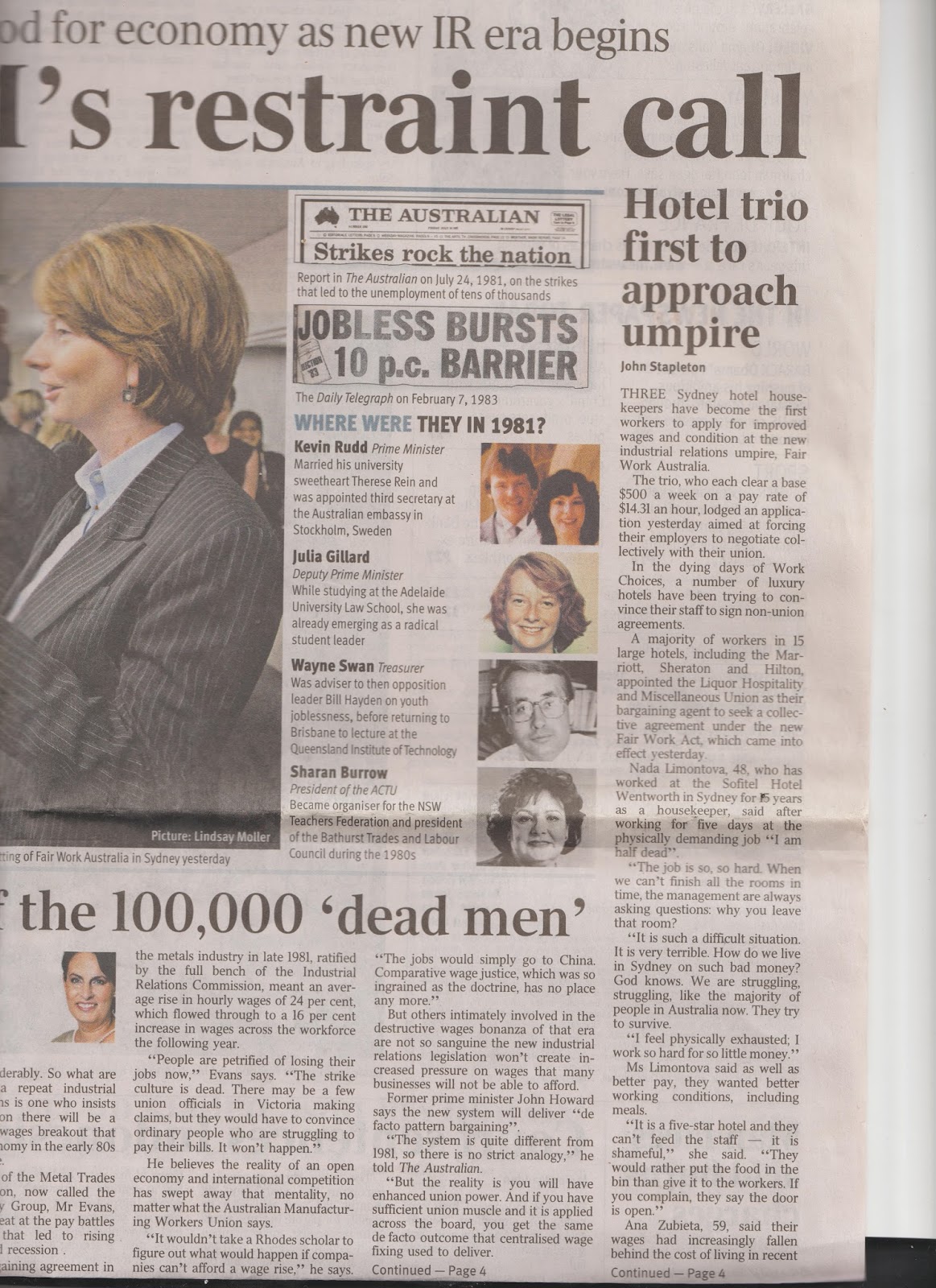Hotel trio first to approach Work Australia
- JOHN STAPLETON
- JULY 02, 2009 12:00AM
THREE Sydney hotel housekeepers have become the first workers to apply for improved wages and condition at the new industrial relations umpire, Fair Work Australia.
The trio, who each clear a base $500 a week on a pay rate of $14.31 an hour, lodged an application yesterday aimed at forcing their employers to negotiate collectively with their union.
In the dying days of Work Choices, a number of luxury hotels have been trying to convince their staff to sign non-union agreements.
A majority of workers in 15 large hotels, including the Marriott, Sheraton and Hilton, appointed the Liquor Hospitality and Miscellaneous Union as their bargaining agent to seek a collective agreement under the new Fair Work Act, which came into effect yesterday.
Nada Limontova, 48, who has worked at the Sofitel Hotel Wentworth in Sydney for 15 years as a housekeeper, said that after working for five days at the physically demanding job “I am half dead”.
“The job is so, so hard. When we can’t finish all the rooms in time, the management are always asking questions: why you leave that room?
“It is such a difficult situation. It is very terrible. How do we live in Sydney on such bad money? God knows. We are struggling, struggling, like the majority of people in Australia now. They try to survive.
“I feel physically exhausted; I work so hard for so little money.”
Ms Limontova said as well as better pay, they wanted better working conditions, including meals.
“It is a five-star hotel and they can’t feed the staff – it is shameful,” she said. “They would rather put the food in the bin than give it to the workers. If you complain, they say the door is open.”
Ana Zubieta, 59, said their wages had increasingly fallen behind the cost of living in recent years, at the same time as management pushed them to clean more and more rooms. “We are very much behind,” she said.
“I feel like everybody else – the money is not enough.
“Everything has skyrocketed – rents, electricity. It’s very hard physical work.”
The national secretary of the LHMU, Louise Tarrant, said the application was to require the hotels to bargain “in good faith” with their employees.
She said they had not set down a specific set of claims at this point but were conducting a national survey of the industry to gauge worker concerns.
“Luxury hotel workers want to go down in history as the first workers to use Labor’s new industrial relations law,” she said.
“Lodging these forms was quite an emotional moment – there were tears and cheers. This is very significant for them. These workers understand that from today they have legal rights. They are among the lowest-paid workers in Australia. Wages, job security, training, career paths, health and safety and rostering all urgently need to be addressed.”
The chief executive of the Australian Hotels Association, Bill Healey, said his members accepted workers wanted to be represented by a union, were happy to negotiate on an enterprise level and “have been trying to develop a relationship that allows this to happen”.


